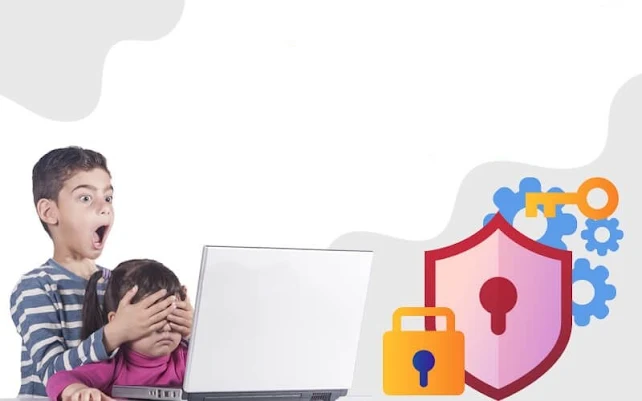Internet Safety for Children: Here Is How to Keep Your Kids Safe Online
We all need security when it comes to life - whether in our jobs, homes, or relationships with others - to go about our day. This security is also needed for the virtual realities we create on Instagram, Facebook, online classes, and working online. It is especially needed if we use our banking apps on our phones, tablets, and PCs to keep our finances safe.
So, how do we create online security or internet security? Continue reading to find out.
 |
| Internet safety for kids |
Why is It Important for Children to Be Safe Online?
The internet offers incredible learning and entertainment opportunities, but it also exposes children to risks like cyberbullying, identity theft, and misinformation. Keeping kids safe online is essential to protect them from cyber threats, inappropriate content, scams, and online predators.
According to a survey by cyber security provider ExpressVPN, over 2,000 children in the U.S. and U.K. aged four to 13 now have equal access to the internet the same way their parents or guardians do. So it is just appropriate to check their activities to ensure they are safe and not exposed to harmful content.
Another reason to safeguard online is that certain links sent to your kids with colorful pictures are gateways for viruses that lead to corruption of data and make it easy to steal anything from their devices like pictures, personal details, and anything else to misuse that information which leads to fraud, kidnapping, and other unlawful crimes too.
Setting clear ground rules, using parental controls, and educating children about online safety can help create a secure digital environment.
 |
| Internet safety measures |
Tips to Keep Your Kids Safe Online
Here are tips to help you reduce online risks and keep your child safe:
Use an Appropriate Password and Install Two-step Verification Where Possible
Use a password that you can easily recall but is well encrypted with symbols, numbers, and lower and upper case letters.
Also, try to link your laptop and phone sign-ins using two-step verification so no one else can easily misuse your data or even use your email address to log in to their own devices.
Google sign-in, Instagram, Facebook, and other social media sites allow for easy integration of the two-step verification between any of your most used devices.
Please use this feature for extra safety. New York Times’ guide to digital privacy and keeping yourself safe explains in detail all that is needed to do to stay safe online.
Talk to Your Kids About Online Scammers/Strangers
We talk to our children about stranger danger on the streets, in public safes, or when they are alone.
We don’t tell them about stranger danger online when they are playing interactive video games or attending classes, virtually that not everyone online has the best interests at heart.
Many strangers use specific means to get close to your child or start developing a relationship by consistently calling them “a friend” in messages when playing interactive games like PubG and getting them to give information about their parents and friends under pretenses.
Keep Your Location Safe
No matter how much you trust websites, your social media accounts, or apps, people can easily hack into devices, and the location settings on your devices make you an easy target to find.
A lot of stalkers try to see where you live, and that can put you and your kids at risk. If they can find your location, they know where to find you.
While turning on location makes it easy to learn about things happening in your area, it also makes you an easy target.
We all need to take precautions, so we don’t fall prey to online fraud. I hope these tips helped you learn more about online safety and our roles as parents in this digital age.
How to Keep Your Kids Safe Online: Summary
Keeping kids safe online requires proactive measures. Here are some essential tips:- Set Clear Rules – Establish guidelines for internet usage, including screen time limits and approved websites.
- Use Parental Controls – Enable filters and monitoring tools to block inappropriate content.
- Educate About Cyber Threats – Teach kids about online scams, phishing, and the importance of privacy.
- Monitor Online Activity – Regularly check browsing history and social media interactions.
- Encourage Open Communication – Make sure children feel comfortable discussing online experiences.
- Secure Devices – Keep software updated and use strong passwords. Teach Responsible Sharing – Explain the risks of sharing personal information online.
